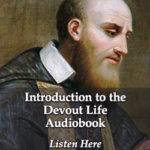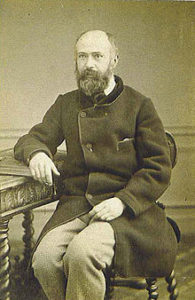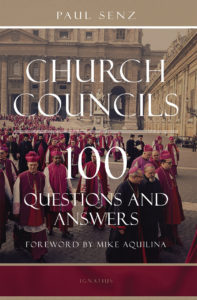“FROM rash judgments proceed mistrust, contempt for others, pride, and self-sufficiency, and numberless other pernicious results, among which stands prominently the sin of slander, which is a veritable pest of society. Oh, wherefore can I not take a live coal from God’s Altar, and touch the lips of men, so that their iniquity may be taken away and their sin purged, even as the Seraphim purged the lips of Isaiah. He who could purge the world of slander would cleanse it from a great part of its sinfulness!
He who unjustly takes away his neighbor’s good name is guilty of sin, and is bound to make reparation, according to the nature of his evil speaking; since no man can enter into Heaven cumbered with stolen goods, and of all worldly possessions the most precious is a good name. Slander is a kind of murder; for we all have three lives—a spiritual life, which depends upon the Grace of God; a bodily life, depending on the soul; and a civil life, consisting in a good reputation. Sin deprives us of the first, death of the second, and slander of the third. But the slanderer commits three several murders with his idle tongue: he destroys his own soul and that of him who hearkens, as well as causing civil death to the object of his slander; for, as S. Bernard says, the Devil has possession both of the slanderer and of those who listen to him, of the tongue of the one, the ear of the other. And David says of slanderers, “They have sharpened their tongues like a serpent; adders’ poison is under their lips.” Aristotle says that, like the forked, two-edged tongue of the serpent, so is that of the slanderer, who at one dart pricks and poisons the ear of those who hear him, and the reputation of him who is slandered.
My daughter, I entreat you never speak evil of any, either directly or indirectly; beware of ever unjustly imputing sins or faults to your neighbor, of needlessly disclosing his real faults, of exaggerating such as are overt, of attributing wrong motives to good actions, of denying the good that you know to exist in another, of maliciously concealing it, or depreciating it in conversation. In all and each of these ways you grievously offend God, although the worst is false accusation, or denying the truth to your neighbor’s damage, since therein you combine his harm with falsehood.
Those who slander others with an affectation of good will, or with dishonest pretenses of friendliness, are the most spiteful and evil of all. They will profess that they love their victim, and that in many ways he is an excellent man, but all the same, truth must be told, and he was very wrong in such a matter; or that such and such a woman is very virtuous generally, but and so on. Do you not see through the artifice? He who draws a bow draws the arrow as close as he can to himself, but it is only to let it fly more forcibly; and so such slanderers appear to be withholding their evil-speaking, but it is only to let it fly with surer aim and go deeper into the listeners’ minds. Witty slander is the most mischievous of all; for just as some poisons are but feeble when taken alone, which become powerful when mixed with wine, so many a slander, which would go in at one ear and out at the other of itself, finds a resting-place in the listener’s brain when it is accompanied with amusing, witty comments. “The poison of asps is under their lips.” The asp’s bite is scarcely perceptible, and its poison at first only causes an irritation which is scarcely disagreeable, so that the heart and nervous system dilate and receive that poison, against which later on there is no remedy.
Do not pronounce a man to be a drunkard although you may have seen him drunk, or an adulterer, because you know he has sinned; a single act does not stamp him forever. The sun once stood still while Joshua and the children of Israel avenged themselves upon their enemies; and another time it was darkened at mid-day when the Lord was crucified; but no one would therefore say that it was stationary or dark. Noah was drunk once, and Lot, moreover, was guilty of incest, yet neither man could be spoken of as habitually given to such sins; neither would you call S. Paul a man of blood or a blasphemer, because he had blasphemed and shed blood before he became a Christian. Before a man deserves to be thus stigmatized, he must have formed a habit of the sin he is accused of, and it is unfair to call a man passionate or a thief, because you have once known him to steal or fly into a passion. Even when a man may have persisted long in sin, you may say what is untrue in calling him vicious. Simon the leper called Magdalene a sinner, because she had once lived a life of sin; but he lied, for she was a sinner no longer, but rather a very saintly penitent, and so our Lord Himself undertook her defence. 99
The Pharisee looked upon the publican as a great sinner,—probably as unjust, extortionate, adulterous; but how mistaken he was, inasmuch as the condemned publican was even then justified! If God’s Mercy is so great, that one single moment is sufficient for it to justify and save a man, what assurance do we have that he who yesterday was a sinner is the same to-day? Yesterday may not be the judge of today, nor to-day of yesterday: all will be really judged at the Last Great Day. In short, we can never affirm a man to be evil without running the risk of lying. If it be absolutely necessary to speak, we may say that he was guilty of such an act, that he led an evil life at such and such a time, or that he is doing certain wrong at the present day; but we have no right to draw deductions for to-day from yesterday, nor of yesterday from today; still less to speak with respect to the future.
But while extremely sensitive as to the slightest approach to slander, you must also guard against an extreme into which some people fall, who, in their desire to speak evil of no one, actually uphold and speak well of vice. If you have to do with one who is unquestionably a slanderer, do not excuse him under the expressions of frank and free-spoken; do not call one who is notoriously vain, liberal and elegant; do not call dangerous levites mere simplicity; do not screen disobedience under the name of zeal, or arrogance of frankness, or evil intimacy of friendship. No, my child, we must never, in our wish to shun slander, foster or flatter vice in others; but we must call evil evil, and sin sin, and so doing we shall serve God’s Glory, always bearing in mind the following rules.
If you would be justified in condemning a neighbor’s sin, you must be sure that it is needful either for his good or that of others to do so. For instance, if light, unseemly conduct is spoken of before young people in a way calculated to injure their purity, and you pass it over, or excuse it, they may be led to think lightly of evil, and to imitate it; and therefore you are bound to condemn all such things freely and at once, unless it is obvious that by reserving your charitable work of reprehension to a future time, you can do it more profitably.
Furthermore, on such occasions it is best to be sure that you are the most proper person among those present to express your opinion, and that your silence would seem in any way to condone the sin. If you are one of the least important persons present, it is probably not your place to censure; but supposing it to be your duty, be most careful just in what you say,—let there not be a word too much or too little. For instance, you censure the intimacy of certain people, as dangerous and indiscreet. Well, but you must hold the scales with the most exact justice, and not exaggerate in the smallest item. If there be only a slight appearance of evil, say no more than that; if it be a question of some trifling imprudence, do not make it out to be more; if there be really neither imprudence nor positive appearance of evil, but only such as affords a pretext for malicious slander, either say simply so much, or, better still, say nothing at all. When you speak of your neighbor, look upon your tongue as a sharp razor in the surgeon’s hand, about to cut nerves and tendons; it should be used so carefully, as to insure that no particle more or less than the truth be said. And finally, when you are called upon to blame sin, always strive as far as possible to spare the sinner.
Public, notorious sinners may be spoken of freely, provided always even then that a spirit of charity and compassion prevail, and that you do not speak of them with arrogance or presumption, or as though you took pleasure in the fall of others. To do this is the sure sign of a mean ungenerous mind. And, of course, you must speak freely in condemnation of the professed enemies of God and His Church, heretics and schismatics,—it is true charity to point out the wolf wherever he creeps in among the flock. Most people permit themselves absolute latitude in criticizing and censuring rulers, and in calumniating nationalities, according to their own opinions and likings. But do you avoid this fault; it is displeasing to God, and is liable to lead you into disputes and quarrels. When you hear evil of any one, cast any doubt you fairly can upon the accusation; or if that is impossible, make any available excuse for the culprit; and where even that may not be, be yet pitiful and compassionate, and remind those with whom you are speaking that such as stand upright do so solely through God’s Grace. Do your best kindly to check the scandal-bearer, and if you know anything favorable to the person criticized, take pains to mention it.”



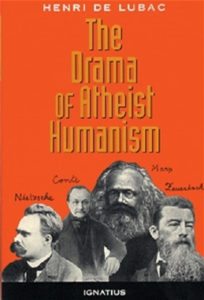 You can find the book
You can find the book 


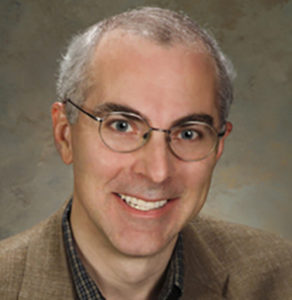
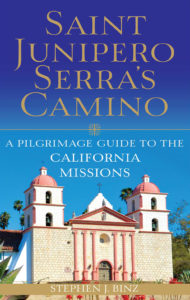


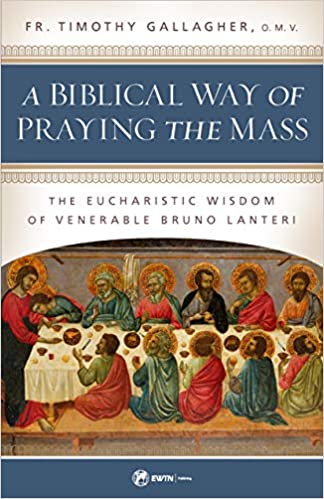
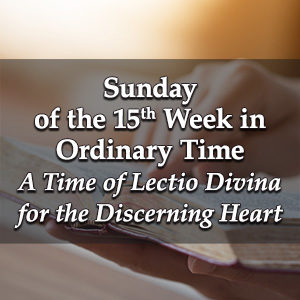 Sunday of the Fifteenth Week in Ordinary Time – A Time of Lectio Divina for the Discerning Heart Podcast
Sunday of the Fifteenth Week in Ordinary Time – A Time of Lectio Divina for the Discerning Heart Podcast
